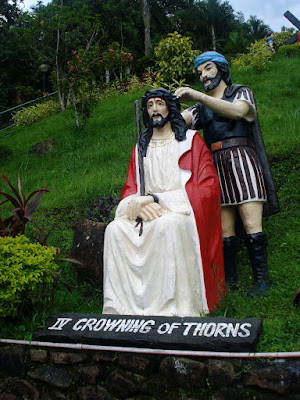CHRIST OR THE REVOLUTION OF KINGSHIP.
November 22, 2020
The Solemnity of Our Lord Jesus Christ, King of the Universe - A.
A Zambian proverb says, “The king lives way up to where the
stench of the poor cannot reach him.” And an Albanian proverb adds, “Crowning a
clown won’t make him a king.”
“How worthy is the Lamb who was slain, to receive power and
divinity, and wisdom and strength and honor. To him belong glory and power for
ever and ever.” (Rev 5: 12; 1: 6)
When we hear the word ‘King’, what comes first in the mind
of everyone is honor, power, glory, wisdom. In monarchic traditions, the
Monarch or the King is the highest personality of a country, the one who has
words of life or death on everyone’s life. What a king says makes office of
law. According to the Britannica Dictionary, the king is a supreme ruler, a sovereign
over a nation or a territory, of higher rank than any other secular ruler
except an emperor, to whom a king may be subject. Kings are known for their
personable, fame, parures with which they are adorned. Thus, the saying goes that, “no
king without throne and crown.”
We live in a world and in societies where, though the
calling and words may have changed, some people live like kings and monarchs
with power, honor, glory, possessions, and surrounded by servants and slaves.
We are celebrating today the last Sunday of the Year of the Church, the Year A.
We are called to contemplate the kingship of Christ. Surprisingly, this
solemnity presents a ‘Revolution of Kingship’. Jesus is king, but not at the
likeness of our worldly kings. He is a Servant-King, a Suffering-King, a
Dying-King. In Jesus Christ, we have a king who, instead of taking the life of
his subjects to save his own life, accept to die, that is, to give up his life
to save that of his subjects. We venerate a king whose throne is not adorned
with precious gems, but with his precious blood and whose crown is not made of
gold, but with thorns. Jesus is a king enthroned on a cross and crowned with
thorns. The greatest and highest characteristic of the Lord’s kingship is love.
It is a love that does not condemn, but rather is eager to save. Jesus, in that
sense, is a king and a judge who saves. Here is the theme and the main message
that springs from today’s word of God.
The image of the shepherd as portrayed by Ezekiel matches
perfectly to Jesus-Christ, the greatest of all shepherds, the Messiah. In the
Gospel, keeping with this analogy of the shepherd and his sheep, Jesus
describes the coming of the Son of Man, the final judgment, as a time to make a
separation between evil and good. The Lord says, “When the Son of Man comes in
his glory, and all the angels with him, he will sit upon his glorious throne,
and all the nations will be assembled before him. And he will separate them one
from another, as a shepherd separates the sheep from the goats.”
The judgment as here described will have one unique module:
love. It is all on the love that we have shown and shared with each other.
Love, brethren, is the only thing on which God will judge us; or to say it
better, as it is not God to judge, but ourselves, love will be the argument of
our own judgment. For, love is what moves us either to feed or not to feed the
hungry, to give or to refuse to give drink to the thirsty, to welcome or not to
welcome the stranger, to clothe or not to clothe the naked, to care or not to
care for the sick, to visit or not to visit the prisoners… The people who love,
see the Lord in every needy, and find eagerness to serve him in them. Those who
do not love, not only do not see the need of their fellow brothers and sisters
but never do they see the Lord in them. And because they fail to see God in the
needy, they can do all kinds of evil to others to save their own self-centered
interests. The opposite of love, in that sense, is not hatred, but selfishness.
For, while love makes man selfless, the absence of love, expressed in form of
hatred, leads to egoism, narcissism, indifference, and sadly to sadism, finding
one’s joy in the suffering of others.
Jesus, at the end of the parable of the final judgment,
makes it a stern warning, “Amen, I say to you, what you did not do for one of
these least ones, you did not do for me.” This is clear that what you do to the
needy, you do it to the Lord. Therefore, what you fail to do for them, it is
also to God you fail to do it. Don Orione said rightly, “The image of God
shines in the most lowly of men. Whoever gives to the poor, gives to God, and
will receive his reward from the hand of God.”
St. Paul, in the second reading, exhorts the Corinthians
that Christ, at the end will hand over the kingship to his Father. After
subjecting all things and all creations to himself, Jesus will bring all to
God. The Lord Jesus, we know, subjected all things to himself not by lording
over them through oppressive power, but by dying for all. Through his death and
resurrection, Jesus became king of all creation. His throne, therefore, is the
instrument of his torture and his crown, the sign of his humiliation and
mockeries of his torturers, the thorns.





Comments
Post a Comment